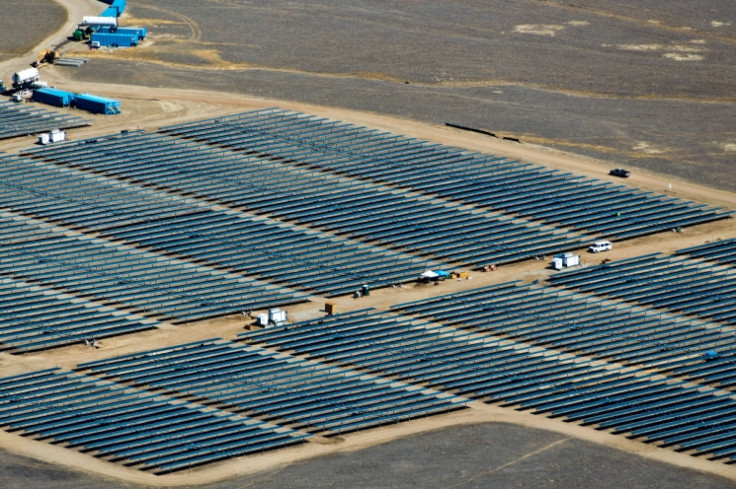Green Tea Coalition Merges Tea Party Politics And Environmentalism

Debby Dooley is, at first glance, the model Tea Party Republican. She co-founded the Atlanta Tea Party and sits on the Tea Party Patriots’ board of directors. She’s rallied against taxation and big government. Dooley’s Twitter feed even brands her a “dangerous right-wing extremist grandmother.” So why is she working with the Sierra Club?
For decades, conservatives and environmentalists have been at odds, but Dooley is seeking to bridge the gap as founder of the Atlanta-based Green Tea Coalition, which has partnered with the conservationist (and decidely not conservative) Sierra Club to push for more solar energy across Georgia. Despite the odds, the coalition has made progress in pushing for solar energy in Georgia.
In May, Bloomberg reports, the Sierra Club and the Green Tea Coalition successfully lobbied for Southern Co. (NYSE: SO) subsidiary Georgia Power to purchase more energy from solar sources, including rooftop panels. Now, the two are partnering to repeal a Georgia law that prohibits companies from owning solar panels installed on residential roofs.
That law currently prevents companies like SolarCity (NASDAQ: SCTY) from cheaply installing solar panels on consumers’ roofs and selling excess power back to larger companies like Georgia Power. This means that private Georgia residents who want to invest in solar power would have to pay for the entire system themselves, an extremely expensive undertaking.
Though the relationship between Republicans and environmentalists has been strained over the past few decades, the two groups haven’t always been as divided as recent history would suggest. In the early 20th century, Republican President Theodore Roosevelt was a noted environmentalist who created the Bureau of Forestry and worked closely with the Sierra Club to establish Yosemite as the nation’s second-ever national park. More recently, President Richard Nixon spearheaded the creation of the Environmental Protection Agency. It’s only been in recent decades that conservatives and environmentalists have become so bitterly opposed.
Now, after years of ideological opposition, the Green Tea Coalition and the Sierra Club agree that such mandates are unfair to consumers and to the planet.
“Where the Tea Party and the Sierra Club align is on pro-fairness and about the future of the planet,” Colleen Kiernan, director of the Sierra Club’s Georgia chapter, told Bloomberg.
Still, that doesn’t mean that the two organizations agree on much else.
“Some people have called this an unholy alliance,” Dooley told Bloomberg. “We agree on the need to develop clean energy, but not much else.”
In fact, even the reasons behind their calls for more solar energy are different. For the Green Tea Coalition, solar power is as much of a consumer issue as it is an environmental one.
In September, Dooley explained to the Daily Beast that she supports solar energy in part because of her opposition to government subsidies for big energy and nuclear and coal power. Instead, Dooley insists, the government should end all subsidies to energy corporations and let the market choose. As solar prices continue to decrease year after year, she believes that solar is on track to become the most affordable option for consumers.
“People are hypocritical when they say, 'Ooooh, Solyndra. Look at the subsidies solar receives!’” Dooley told the Daily Beast. “But they’re silent on the subsidies coal and nuclear have received since the 1940s.”
Despite her pro-consumer, anti-government ideology, Dooley and the Green Tea Coalition have repeatedly clashed with fellow tea party organizations. When campaigning for Georgia Power to increase its purchases of solar power, the Green Tea Coalition found itself at odds with Americans for Prosperity, the powerful conservative group largely funded by petroleum billionaires the Koch brothers.
Dooley says that the group immediately began a misinformation campaign claiming the measure would drastically increase consumers’ energy costs. Despite the campaign, the Green Tea Coalition still prevailed.
© Copyright IBTimes 2024. All rights reserved.






















